- OT
- Professional support
- Health services
- At the table
The cover story
At the table
OT finds out how political engagement can catalyse change for patients and the profession

08 April 2024
At the Institute for Government conference a banner reads: “We don’t predict the future, we help you shape it.”
The shadow health minister and former NHS manager outlined how 619,000 patients are waiting for eye care treatment – including 17,000 people who have been on the waiting list for more than a year.
“Patients are left with a desperate choice: wait and risk losing their eyesight, or pay to go private. There is a two-tier health system emerging,” she highlights.
At the January conference, Smyth described how optometry practices, with their specialist staff and equipment, could play an important role in easing the burden on hospitals.
“To be an outpatient, you shouldn’t have to go into hospital. The clue really is in the name,” she highlighted.
Concrete details about how this transfer of care would be implemented – for example, funding and the specific conditions that would be treated – have not been set out.
However, the fact that optometry is being discussed at all is, of itself, a type of political sea-change.
Prominent campaigns – such as The Eyes Have It and Sight won’t wait – have brought eye care into focus nationally and amplified the voices of the professionals who deliver that care.
Hansard records show that since 2021, there have been more mentions of optometry in parliament than every reference to the profession in the preceding decade combined.
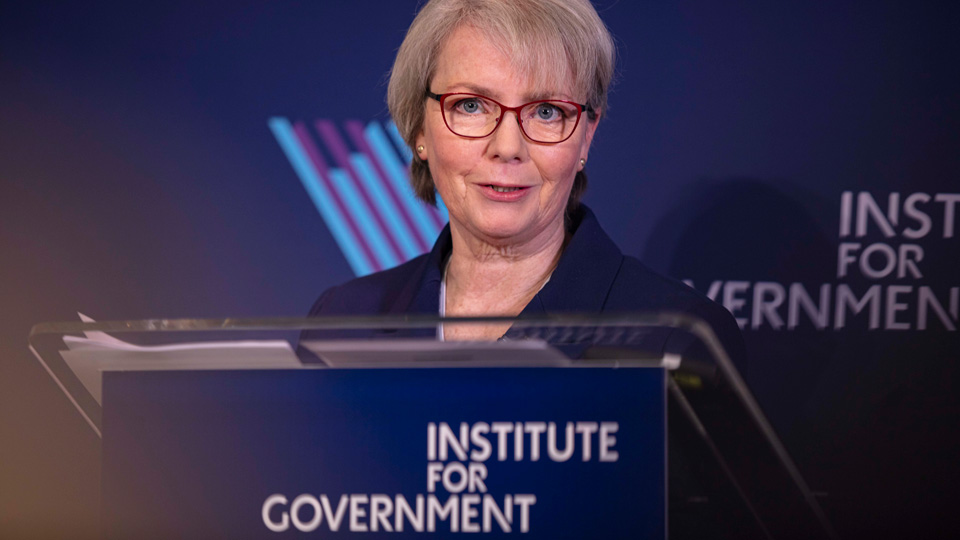
A vision for change
Speaking with OT in February, Smyth highlighted the impact that delays in treatment have on patients.“What we see is these terrible waiting lists – each one is really anxiety-inducing for the individual and their family,” she said.
“We really want to see that change and we think the use of the High Street optometrist is a way to help tackle that problem,” Smyth emphasised.
Smyth, who visited Specsavers Kingswood at the end of January, highlighted the importance of accessibility when it comes to healthcare.
“Prevention, as we all know, is much better than having to cure a condition further down the track. Finding problems early is, in the long term, a better way of reducing those waiting lists and actually reducing costs in the system,” she said.
When asked how Labour would implement change if elected to government, Smyth highlighted the importance of establishing the services optometrists can deliver.
“We would need to work with the profession so that people can operate at the extent of their licence,” she emphasised.
When asked about funding, Smyth shared that this would form part of negotiations with the sector. She acknowledged variation in how eye care is offered across the UK.
“We know that different health systems are operating differently. Some are very advanced and we wouldn’t want to take those areas backwards. It is a case of working out what is working best across the country,” Smyth shared.
“We’d want to understand where there are particular problems. But where things are moving at pace, we would want to support that and learn from it,” she said.
Prevention, as we all know, is much better than having to cure a condition further down the track
Smyth confirmed that establishing connectivity between primary and secondary care is a priority for Labour.
“The interoperability between primary and secondary care is a key issue for how we reform the health service across all specialties,” she said.
“There are good examples where that’s working well, but that is not happening enough across all parts of the sector,” Smyth said.
Experience as an NHS manager has informed Smyth’s approach as a politician. She helped to set up a referral management service in Bristol, which included collaboration with ophthalmology.
“I have insight into some of these longstanding issues. And I think I do bring that to the piece. I know how difficult it is to change systems, to support good practice and then spread it,” she said.
“I hope to help people across the country have a better NHS,” Smyth concluded.
From reactive to proactive
After working as an optometrist for more than three decades, AOP chairman, Emma Spofforth, has heard many promises from politicians wearing an array of different coloured rosettes.However, she has met Smyth’s plans to deliver more care in High Street optometry practices with cautious optimism.
“I think what we ought to really do is acknowledge the fact that it has been said openly,” she said.
“We’ve done a lot of work engaging politically, and it clearly has made a difference. The idea is absolutely brilliant – as long as there’s money to support that,” she said.
Over the course of her career, Spofforth has observed optometry enter the national spotlight during periods of change for the profession – such as deregulation and the removal of free universal sight tests in England.
“I think, historically, we have been reactive as a profession whereas now we are much more proactive,” she said.
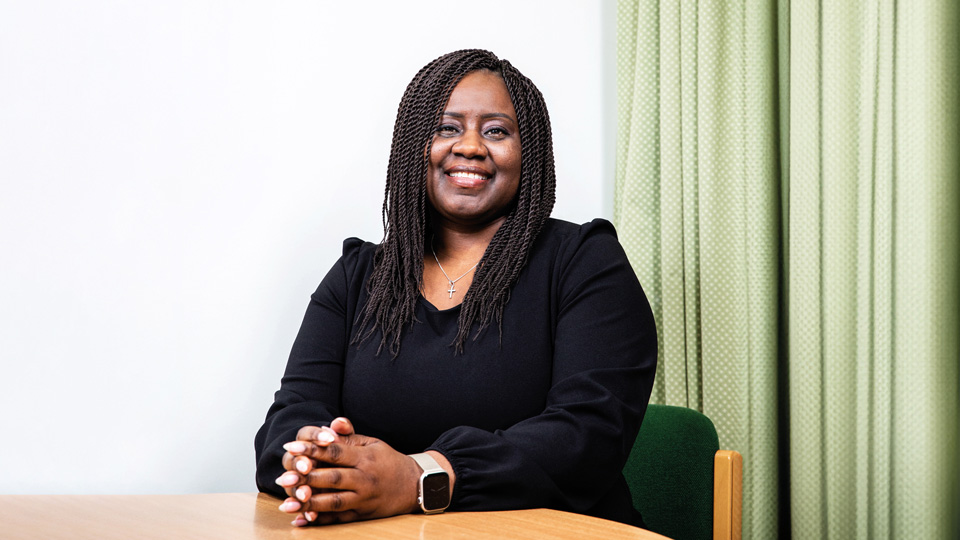
A key force for change has been Battersea MP Marsha de Cordova’s drive to introduce a national strategy for eye care within England.
“England is the only country in the UK without an eye health strategy,” she shared.
“The benefits would transform lives, alleviate pressure on health services and reduce economic costs. Our goal should be to ensure that no one loses their sight unnecessarily,” she said.
A Freedom of Information Act request by Optometry Today in February 2023 revealed that, since 2019, there have been 551 reports of patients losing their sight as a result of treatment delays.
Spofforth shared that many optometrists are witnessing first-hand the effects of delays in treatment.
Historically, we have been reactive as a profession, whereas now we are much more proactive
She added that an optometry practice is often more accessible than a hospital eye clinic for patients with concerns about worsening symptoms.
“It’s a big issue. A lot of optometrists will struggle to help the patients who come to them,” she said.
Alongside treatment delays, Spofforth put forward funding concerns and connectivity challenges as key issues for optometry within England.
She highlighted that the General Ophthalmic Services fee has not kept pace with advances in technology and the level of service that optometrists offer.
Spofforth believes that establishing a reliable and consistent method for sharing information between optometry practices and secondary care would help to reduce unnecessary referrals.
“Far too few optometrists get an outcome letter after their referral,” Spofforth observed.
“If you’ve got decent connectivity set up, there’s a two-way transfer of information. That helps the individual optometrist to learn and it can prevent referrals in the future,” she said.
Spofforth points to negotiations in Scotland and Wales as examples of how political engagement has resulted in tangible change for optometrists working in practice.
“They stood up, they’ve been counted, and they produced change. We’ve seen the benefits that have occurred as a result,” she said.
Public awareness of optometry has increased over time. For example, every year since 2015, the General Optical Council has asked 2000 members of the public where they would go if they woke up with an eye problem.
Last year, for the first time, optometry was the most popular choice across the UK (selected by 36% of respondents), followed by a GP practice (33%).
There remain stark differences in an individual’s answer depending on whether they live in Scotland, Northern Ireland, Wales and England – with 46%, 49%, 39% and 30% of residents, respectively, selecting optometry as their first port of call.
Positive potential
When judging how political engagement strengthened the optical sector in Scotland, an obvious place to start is funding.Up until 2021, the optical sector was the only primary care provider in Scotland that did not have an annual fee review process.
Negotiations spearheaded by Optometry Scotland saw the profession go from a decade without an increase in the primary eye examination fee, to successive annual uplifts culminating in a 6% rise for 2022–2023.
When asked how she has approached negotiations, Optometry Scotland chair, Julie Mosgrove, emphasised the importance of taking a constructive approach.
“I think it’s very easy for us to focus on what isn’t working. But I think what becomes more exciting is the problem-solving aspect: how do we overcome those challenges to improve things for the future? It’s a good news story, but there is an opportunity to improve it,” she shared.
“As optometrists, we can slip into jargon, but it’s important to keep the message simple and clear,” she said.
If we don’t fix it today, can we fix it tomorrow?
Mosgrove shared that engagement with local optometric committees (LOCs) can help to drive the profession forward.
“That's how I first got involved. I was looking at the challenges and opportunities within Grampian eye care, and then from there, moved on to supporting what we could do nationally in Scotland,” she said.
The LOCs provide optometrists with a chance to share the challenges they are facing every day and come up with solutions.
“You can come up with a collective suggestion that can help drive things forward or make the patient experience better,” Mosgrove observed.
The pace of change and issues around funding can create frustration working in optical politics. But Mosgrove endeavours to keep the bigger picture in mind.
“If we don’t fix it today, can we fix it tomorrow? I think that’s probably what drives me to keep going,” she said.
In Scotland, around four in 10 optometrists have their independent prescribing (IP) qualification. There are currently plans to incorporate IP into the undergraduate course.
Mosgrove shared that there remains uncertainty in Scotland about how the Education and Training Requirements will be implemented – for example, the level of funding that will be allocated to universities and how employers will be supported to deliver placements.
Aligned to the changes in universities is another key issue that Optometry Scotland will focus on in 2024 – identifying current workforce capacity and how this might need to change to meet future demand.
“There are many people who have gone down to part-time or flexible working – that’s a big change,” Mosgrove said.
“It’s not just people towards the end of the career. It’s people coming in fresh into the career looking to do four days rather than five,” she added.
A planned workforce survey would quantify not only how many optometrists are working in Scotland, but the number of days they are working in practice and their mid to long-term career plans.
This information will be particularly pertinent in the context of demographic changes in Scotland and across the UK.
“If we have fewer people coming through, or if we have people coming through but working fewer hours, that's going to make a big difference when we’re a growing, ageing population needing eye examinations,” Mosgrove highlighted.
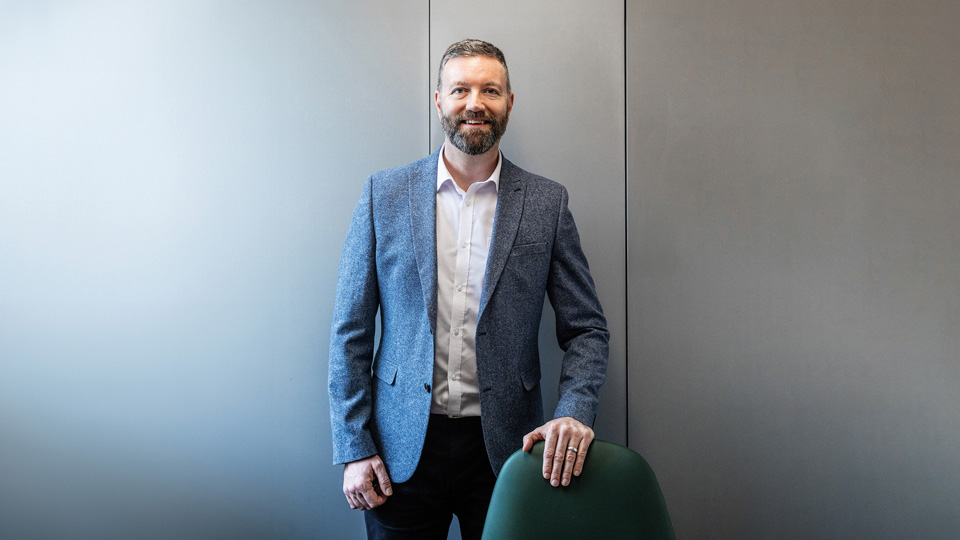
All change
In Wales, a new national contract that came into effect in October 2023 will see more patients turn to optometry practices for care that has traditionally been delivered in hospitals.
Greater financial recognition of clinical skills can be seen in a sight test fee that has more than doubled, while the skills of optometrists with higher qualifications are acknowledged through a higher fee for specialist services.
Optometrists will take on greater levels of low vision work in the community – including, in a UK-first, optometrists with specific qualifications certifying vision impairment. By April 2024, pathways will be in place for optometrists to deliver glaucoma and macular services in the community.
Optometry Wales chair, Craig MacKenzie, who spoke to OT after a morning removing metal from a man’s eye following a welding accident, shared that attendance at his regional optometric committee has doubled following the contract negotiations.
“There is a revolution going on in Wales at the moment,” he said.
“What we’re seeing is lots of optometrists upskilling and investing their time to be able to deliver services in the community. We’re seeing practices and practice owners investing in their practice equipment, and training their staff in order to deliver the services,” MacKenzie shared.
MacKenzie first became involved in a regional optometric committee when he took over his practice – Specsavers Newport – in 2012.
He has observed first-hand the benefit of extended services for patients through a glaucoma referral refinement pilot that began at his practice in 2014.
There is a revolution going on in Wales at the moment
Since 2016, his practice has acted as an ophthalmic diagnostic treatment centre for patients with symptoms of wet age-related macular degeneration.
Through his involvement in Optometry Wales, MacKenzie has approached the question of how to provide a consistent level of service nationally.
“Different health boards were running various different systems and schemes, but they were locally tendered and locally run. There was no uniformity necessarily,” he said.
“We wanted to be able to deliver these services consistently for the betterment of the people of Wales,” he said.
“To be able to see these services rolled out across Wales is really satisfying for me, because I know how well it can work,” MacKenzie emphasised.
MacKenzie acknowledges that there were challenges in negotiating a national contract that took into account the interests of all practitioners and their patients.
“We didn’t get the domiciliary provision right,” he said.
“When we went through the consultation process, we were hearing from domiciliary providers, ‘This can’t work because of X, Y and Z’,” MacKenzie shared.
After taking this feedback on board, Optometry Wales went back to the Welsh Government with updated provisions that took domiciliary concerns into account.
MacKenzie highlighted that Optometry Wales also worked to address why the domiciliary viewpoint had been overlooked.
“We weren’t hearing the voice of domiciliary providers as loudly as we should have been,” he said.
A seat for a domiciliary representative has now been established in regional optometric committees across Wales.
Through the contract reforms in Wales, dispensing opticians will receive a continuing professional development grant.
MacKenzie is a strong supporter of providing further training and development both for dispensing opticians and optical assistants.
“We need to make sure that this tide is going to lift all boats,” he emphasised.
The main question mark that remains in Wales is over digital connectivity that supports the delivery of care. The Welsh Government has committed to rolling out enhanced IT systems for optometry from 2025.
“For the optometrists and the practices that have invested their time and money into being able to deliver the services, we do need the IT infrastructure. So that for us is one of the key issues,” MacKenzie said.
Throughout his involvement in optical politics, MacKenzie has continued to work as an optometrist in practice four days a week.
“Being an optometrist, and testing on a day-to-day basis, makes me the happiest,” he said.
“I do feel really privileged to be able to deliver the clinical care to the patients that come through the door,” MacKenzie shared.
He stressed the importance of optometrists becoming engaged at community level in order to deliver national change.
“It really does involve optometrists getting involved locally themselves, finding out about what can be delivered and speaking to the right people at the right time,” he shared.
“Then that revolution, hopefully, will begin to spill over the border,” MacKenzie concluded.
Addressing access issues in NI
When asked for the key issues facing eye care in Northern Ireland, AOP Councillor, Brian McKeown, described waiting times for treatment as a key issue.
The Optometry Northern Ireland vice chair shared that over the past decade the number of people waiting for their first appointment with a consultant across all specialties had quadrupled – from 100,000 people to 400,000 people. This is in the context of a total population of 1.9 million.
“We are not in a great place and that becomes frustrating when you are an optometrist working in practice, trying to look after your patients,” he said.
He shared that some patients have elected to pay for private care rather than face the long waiting times for treatment.
“I’m certain there’s sight being lost out there. That’s the big issue,” he said.
As well as the issue of waiting times, McKeown highlighted that optometrists in Northern Ireland are grappling with the consequences of a lack of free access to eye care on Universal Credit.
A legal technicality has meant that since 2017 Universal Credit recipients have had to fill out an HC1 form in order to access help with eye care costs, in contrast to the other three nations of the UK.
The reinstatement of Stormont in February created hope that this lack of parity would be addressed, but at the end of March, this lack of access remained.
McKeown shared that patients presenting to practice will often expect to be entitled to free eye care before being told that they have to fill out and submit the lengthy HC1 form – which might take six weeks to be processed.
“It’s creating a barrier to eye care, especially if they need the voucher to help them with the cost of their glasses,” McKeown emphasised.
He puts forward the Universal Credit situation as an example of an issue where political influence can help to bring about change.
McKeown shared Optometry Northern Ireland has been vocal on this issue, which has resulted in media coverage.
“That has definitely put pressure on Stormont and the Health and Social Care Board to realise that there is a problem here,” he said.
In terms of the priorities for Optometry Northern Ireland in 2024, McKeown shared that the organisation is endeavouring to improve awareness of the importance of eye care.
Ensuring that the funding of eye care is sustainable in Northern Ireland and addressing barriers to eye care access are also key priorities.
McKeown observed that members of Optometry Northern Ireland are encouraged to engage politically.
“If our members have a politician in the testing room, we encourage them to have a conversation about eye care and raise some of these issues,” he said.
Of all the nations in the UK, according to GOC data, Northern Ireland is the place where the highest proportion of people would visit their optometrist if they woke up with an eye problem.
McKeown shared that the fact that extended services have been embedded on the High Street through the Primary Eyecare Assessment and Referral Service (PEARS) has helped to shift public opinion.
“Northern Ireland is a very close knit community,” he added.
“I think optometrists have always had a good relationship with their GP. And then credit has to go to optometric advisors, who have reiterated in their communication with GPs, that the PEARS service is here,” McKeown said.
“That hasn’t been without its difficulties – but that is the key thing: communication,” he said.
Step change
In 2006, before Lord Colin Low delivered his maiden address in Parliament, a peer remarked that he was brave to climb the steps to the lectern.
Opening his speech, Lord Low shared his reply: “Not half as brave as I’ll need to be to open my mouth."
Born in Scotland and blind from the age of three, Lord Colin Low had traversed a long and varied career before he arrived in Parliament.
He taught law and criminology at Leeds University and was a senior research fellow at City, University of London exploring theories of disability.
Growing up, Lord Low’s demeanour had seen him cast as a legislator in family plays at Christmas.
Decades later, after two unsuccessful applications, Colin Low became Lord Low of Dalston.
“I think I said, ‘Yipee.’ It was a case of third time lucky,” he shared.
Lord Low described feeling a weight of responsibility following his “somewhat off piste” appointment.
“I didn’t come from the traditional group that was represented in the House of Lords,” he explained.
“I realised that in some senses I was a representative of blind and partially sighted people. I wasn’t appointed in that capacity, but I was conscious of that,” he said.
Following his appointment, Lord Low has spearheaded two seminal reports on social welfare law advice and support.
He has advocated for the development of educational policy that takes into account the views of blind and partially sighted people.
While social attitudes towards those with sight loss may have moved on from a time when people question whether they are capable of climbing stairs, Lord Low describes the transition as a “gradually shifting landscape.”
At the time of his appointment, Lord Low drew attention to the fact that scarcely more than a third of working age people with visual impairment were in employment. This figure has not shifted significantly in the 18 years that he has been a peer.
Over the years, Lord Low has studied the theatre of the House of Lords to learn the most effective way of conveying a message.
He shared the power of describing an individual perspective in bringing home the importance of a larger issue.
“The most effective advocacy and progress in the House of Lords is made by people who have managed to tease out the significance of particular trees in the woods, and then bring the trees to life,” Lord Low said.
As co-chair of the All-Party Parliamentary Group on Eye Health and Visual Impairment, Lord Low produced a report documenting the capacity challenges facing eye care services in 2018.
The first recommendation of the report – to include eye health within NHS England’s mandate – foreshadowed de Cordova’s current drive to introduce a national eye health strategy in England.
“Eye health should be specifically included in the Government’s mandate for the NHS, to ensure that it is accorded a higher priority,” he emphasised during a debate in April 2019.
Lord Low is clear that while he advocates for sections of the community whose voices are not always heard, he does not see himself as particularly disadvantaged.
“I have put a lot of energy in my life into advocating for the underdog but I'm very clear that I’ve been doing this from a position of power,” Lord Low said.
“I’ve had lots of strokes of luck and that’s given me the strength to advocate for people who do experience disadvantage,” he shared.
The constituency MP
At the age of eight, Peter Gibson remembers selecting his first pair of NHS frames before going to the cinema and seeing the picture clearly for the first time.
The MP for Darlington returns to the same independent practice he has visited for 41 years for regular sight tests. He now sees the third generation of the same family of optometrists.
“They’ve been an important part of my life. There’s that consistency of remaining with the same practitioner,” he said.
Gibson’s first brush with politics came as a 12-year-old after he was recruited to deliver leaflets for the council campaign of a family friend – who owned the business next to his optometry practice.
We are not mind readers – tell us about the issue
Although a visit to parliament at the age of 16 inspired Gibson to consider a political career, he put this ambition on the backburner while he pursued a career in law.
“Back then, as an openly gay, Roman Catholic man from the north east of England – there were all of these things that didn’t put me in the Tory box,” Gibson said.
“But fast-forward 30 years, and the world is a very different place,” he said.
Following his election as MP for Darlington in 2017, the part of the job that Gibson has most enjoyed is working as a constituency MP.
“It’s the ability to get to the root of the problem, find out who the decision makers are, and try and make some difference to people’s lives,” he shared.
“There are disappointments every day but there are also successes,” Gibson said.
Gibson’s father was a shipwright while his mother was a midwife. He remembers being allowed to stamp prescriptions as a child and gynaecological discussions around the dinner table. These experiences have shaped his approach as a politician.
“Being in that medical environment, makes you acutely aware of kind of the importance of health care,” Gibson said.
With friends and family members who have experienced sight loss, Gibson appreciates the preventative role that optometrists can play in the community.
“I think all of us involved in public life need to raise awareness of the importance of regular sight tests,” he said.
Gibson has recently sent a letter to all optometry practices in Darlington inviting them to attend a round table to air any issues that need addressing.
He encouraged optometrists to engage with local MPs on the topics they are passionate about.
“We have a reputation for being absent or not understanding issues, but not all politicians are the same,” he said.
“We are not mind readers – tell us about the issue. The majority of MPs are going to say, ‘Thank you for coming to see me. These are the things that I can do’,” Gibson highlighted.
“We’ve got a multitude of channels of engagement on any single issue,” Gibson added.
Advertisement


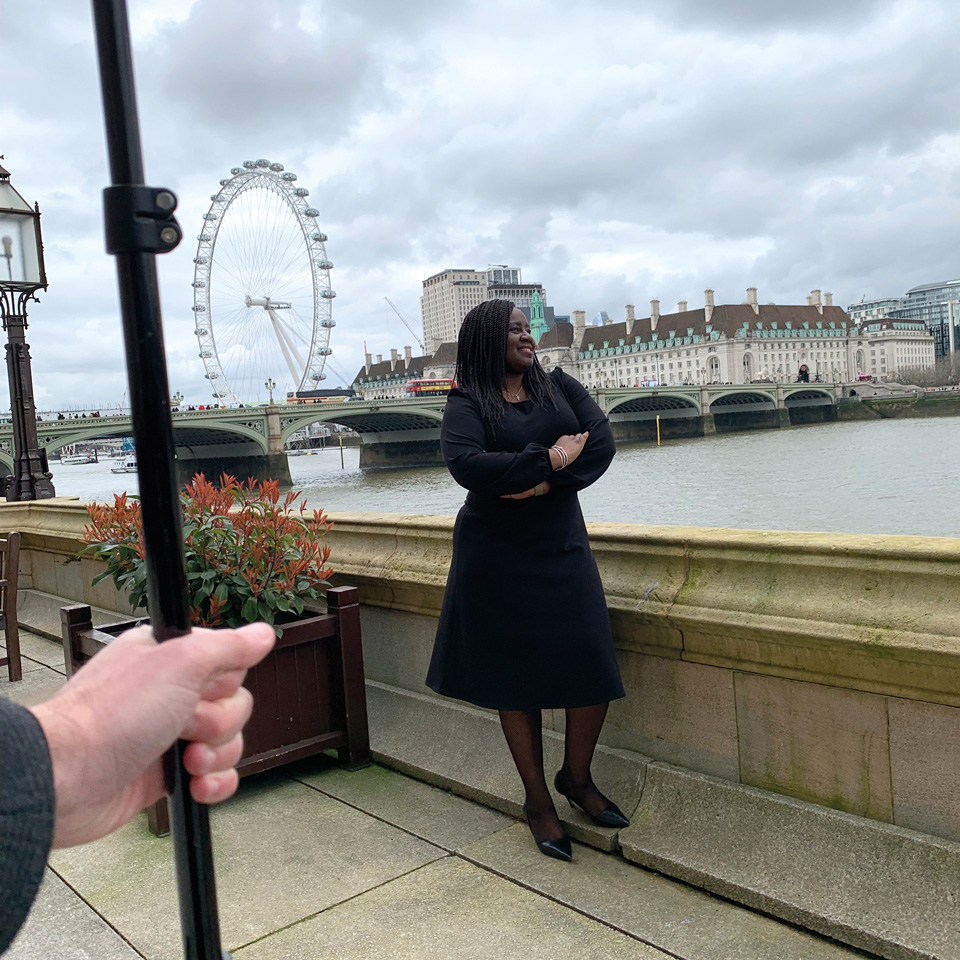
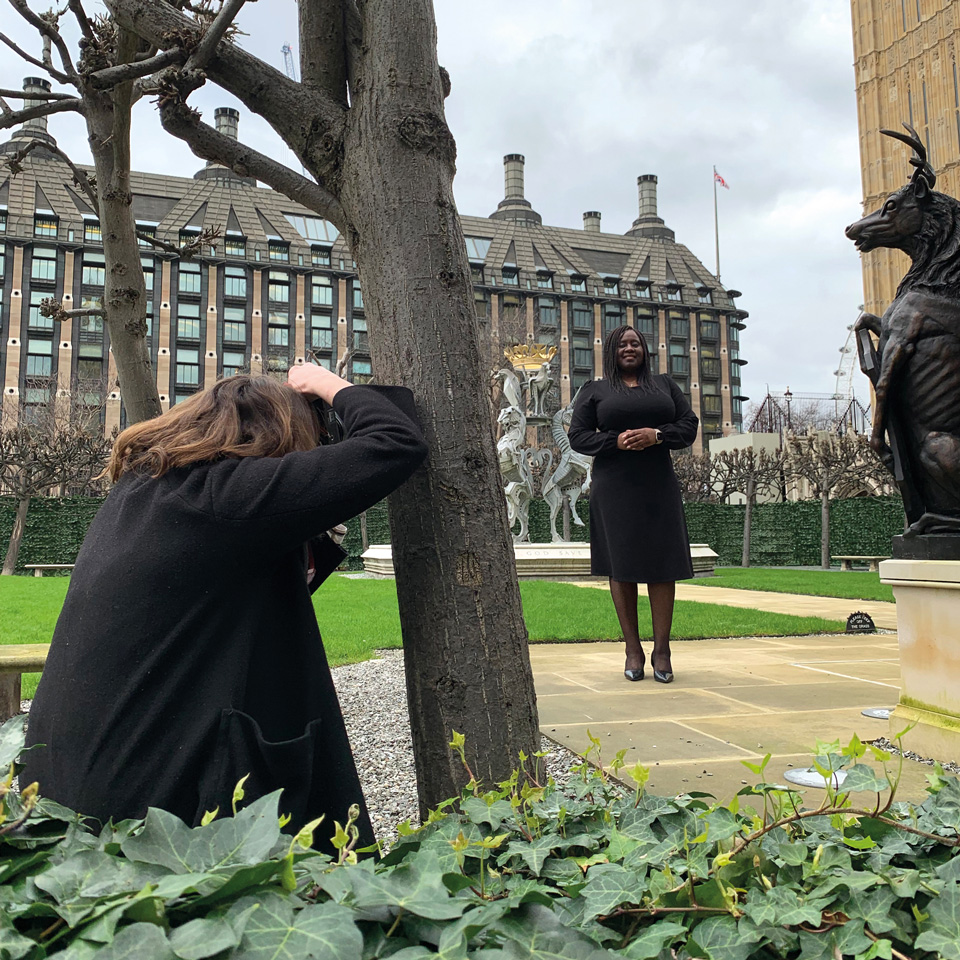
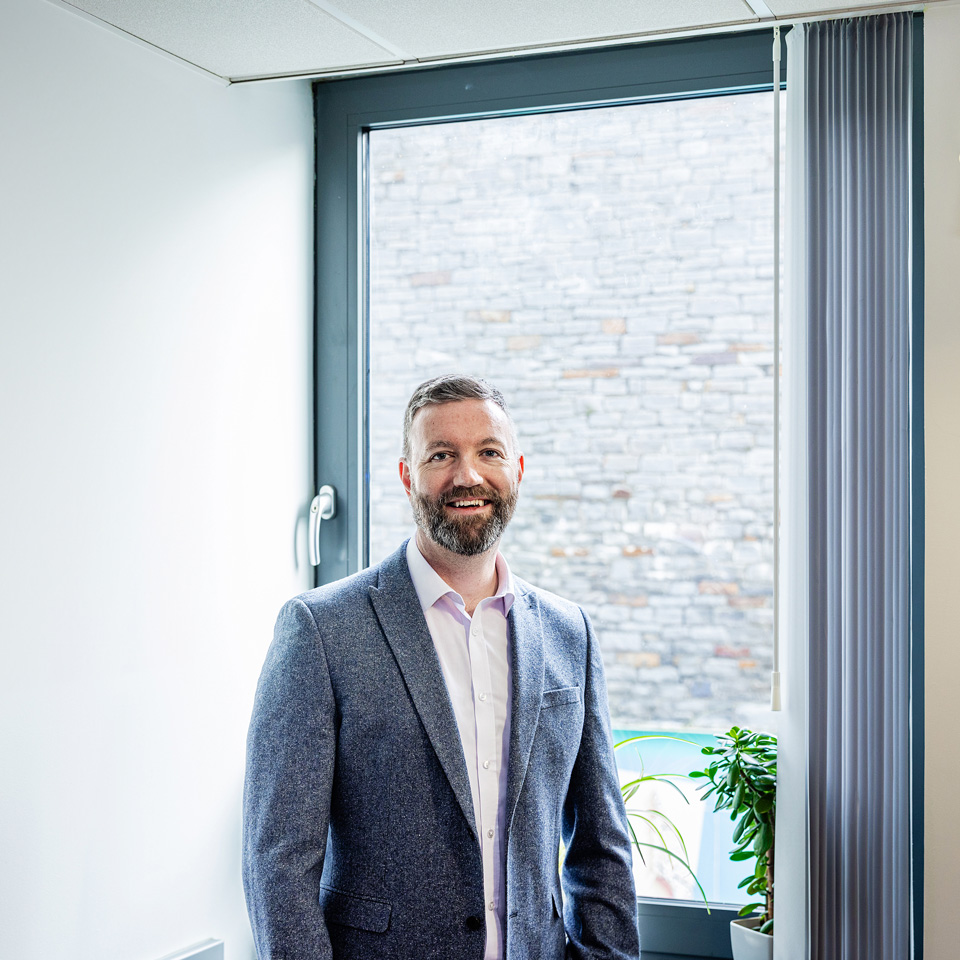
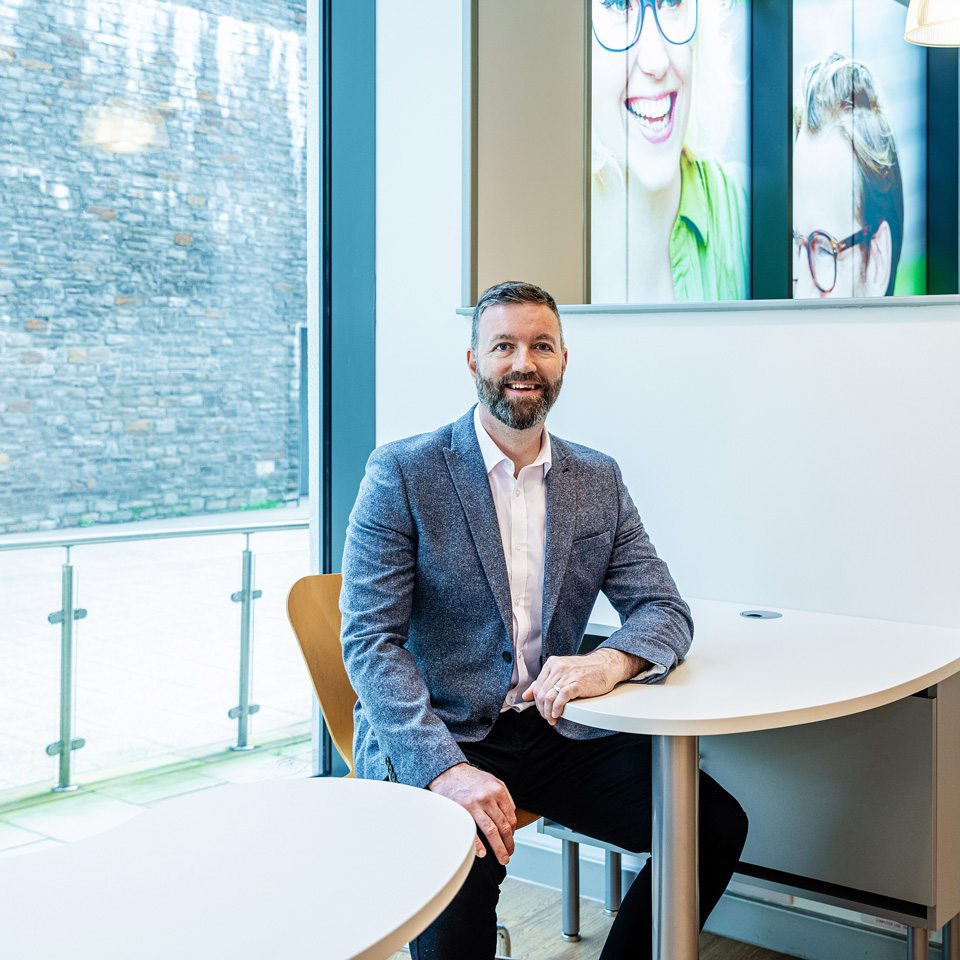
Comments (0)
You must be logged in to join the discussion. Log in